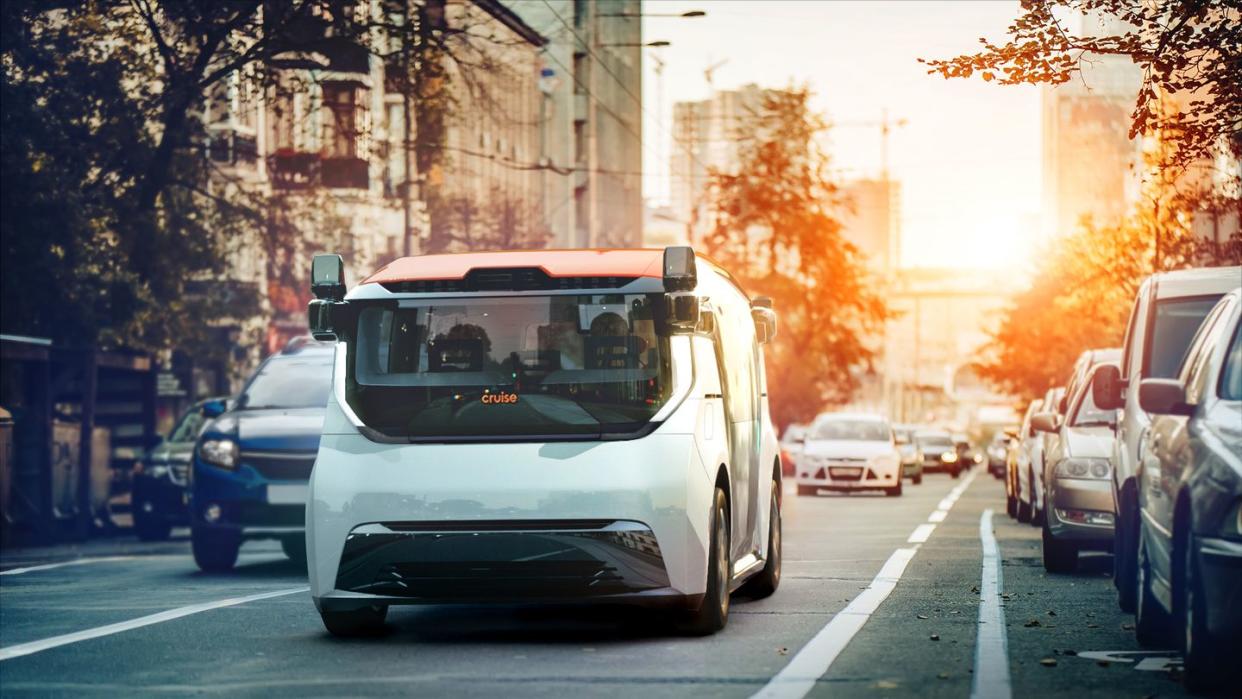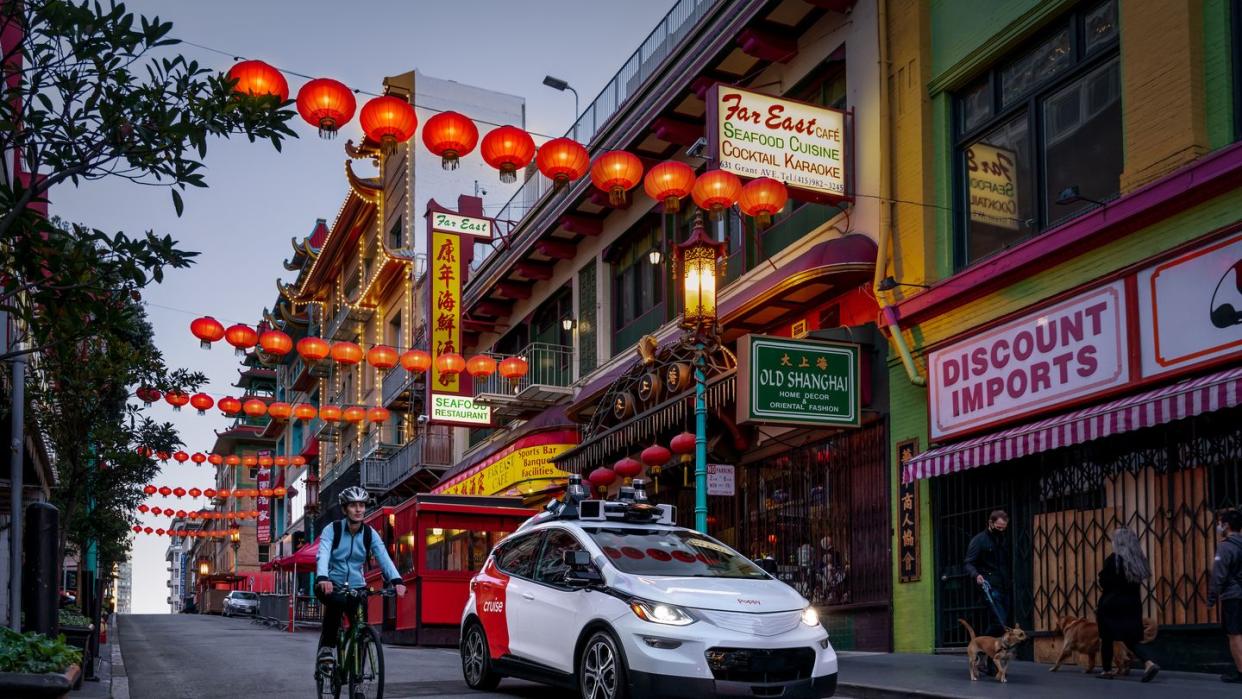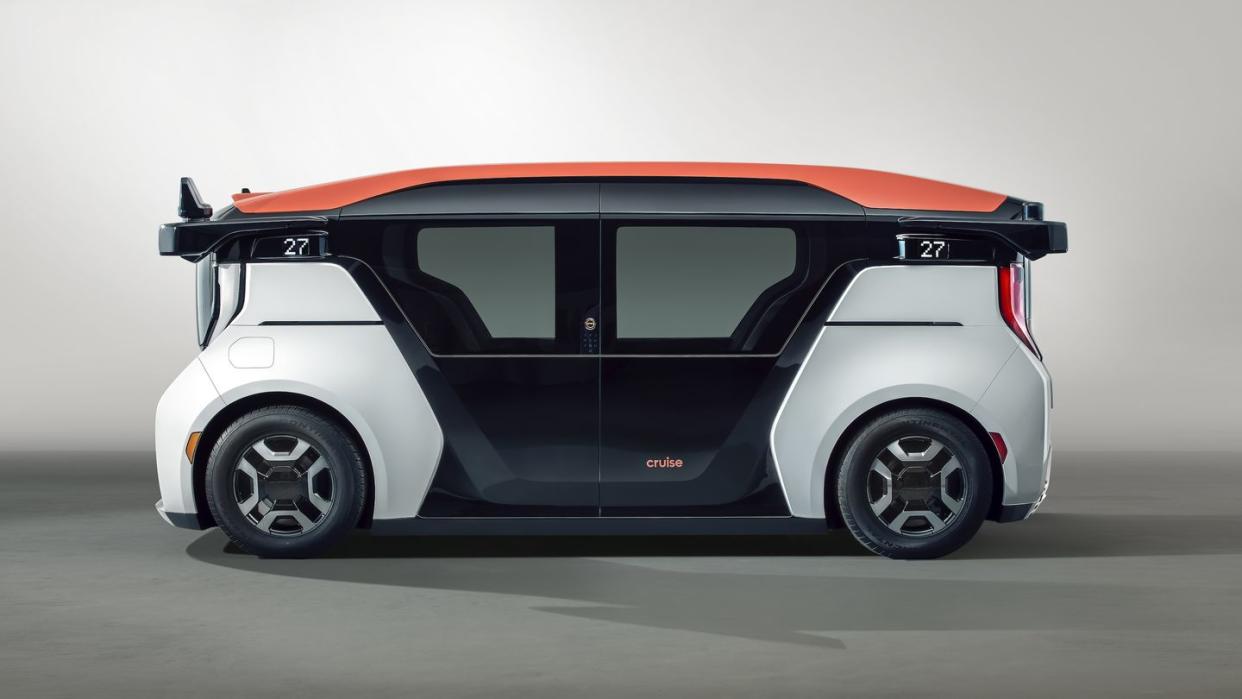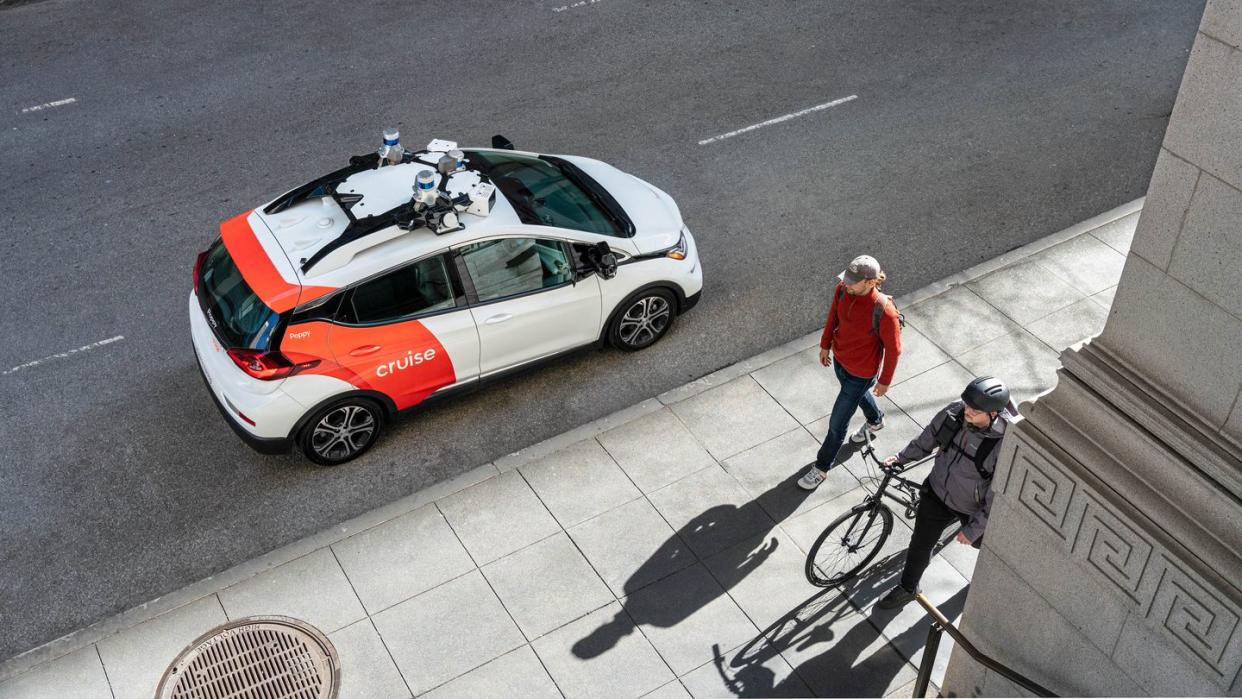GM's Self-Driving Cruise Origin Indefinitely Delayed Amid Major Setbacks

Cruise has suspended its operations indefinitely after losing its permit to operate a fleet of autonomous Chevy Bolts on public roads.
The subsidiary of General Motors had hoped to start production of its autonomous Origin vehicle this year, but those plans are now on hold.
The setback comes after the Bolts were involved in several crashes, among other issues such as blocking emergency vehicles in San Francisco over the past year.
In 2023, it sometimes feels as if we're living in the future. The use of artificial intelligence has exploded with the proliferation of services like ChatGPT (don't worry, this article was written by a real human), Apple launched its Vision Pro mixed-reality headset, and the LED-covered Sphere in Las Vegas is taking entertainment (and advertising) to new heights.
But some aspects of the future are much further away than we thought. Take driverless cars, which some executives—who may or may not be named Elon Musk—have been promising are just around the corner for nearly a decade. Cruise, a subsidiary of General Motors, unveiled its driverless pod, the Origin, in 2020 and claimed production would begin this year. But a series of mishaps for Cruise's fleet of self-driving Chevrolet Bolt EV prototypes have not only prevented the start of Origin production, but have also set back the company's entire operations in a major way.

Cruise started running a fleet of Chevy Bolts fitted with autonomous driving technology and with no-one behind the wheel in 2021, beginning in San Francisco before expanding operations to Phoenix, Miami, Austin, Houston, and Dallas within the past year. But a series of high-profile crashes raised safety concerns, most recently on October 2 when a San Francisco pedestrian who had already been struck by a human-driven car was subsequently hit by a Cruise vehicle. The Cruise car continued driving for a further 20 feet after the collision, dragging the pedestrian with it, and the California Department of Motor Vehicles alleged that Cruise executives misreported the incident. This prompted California officials to indefinitely suspend the company's self-driving car permits on October 24. Cruise then put a pause on its operations, and two founding executives, CEO Kyle Vogt and COO Daniel Kan, resigned last week.
Now a letter sent to employees has revealed Cruise's scaled-back future plans, as reported by Automotive News. Instead of the 13 cities that Cruise had originally aimed to expand to, the company will restart driverless taxi rides in just one city once operations get back underway. The letter didn't specify which metropolis that will be or when Cruise hopes to put vehicles back on the road.

Production of the Cruise Origin is also, unsurprisingly, delayed. AN reports that a GM spokesperson said that neither prototypes nor production models will roll off the line in 2024, with production delayed indefinitely and no schedule for when it might resume. GM is believed to have built a few prototypes so far, but it's unclear how many were made. The spokesperson said that the company's short-term focus is the Bolt-based autonomous vehicles. The Origin was supposed to be assembled at GM's Factory Zero facility in Detroit, where the GMC Hummer EV is built.
Prior to the suspension of Cruise's permits, the Origin had been poised to hit the streets within the next year. There were plans to launch a fleet of Origins in a dozen U.S. cities, and Cruise even announced a ride-hailing service using the Origin in Tokyo just a few days before the suspension of operations.

The Origin had faced other hurdles. The lounge-on-wheels was designed without a steering wheel and accelerator or brake pedals, and General Motors has been seeking an exemption from federal safety standards, submitting a request to NHTSA in February of 2022. While Cruise seemed confident earlier this year that it would receive the exemption, claiming that mass production would start by the end of 2023, there has yet to be a response from NHTSA.
It's clear that Cruise still has plenty of kinks to iron out with its Bolt-based autonomous vehicles before we see the Origin roll off the assembly line. Along with several crashes, the Bolts had been known to block intersections and impede emergency responders, and since there was typically no-one inside, it was challenging to get the vehicles to move. The company's public reputation is also undoubtedly tarnished, and even before the most recent developments, San Francisco locals had rebelled against the autonomous vehicles by placing traffic cones on their hoods, preventing them from moving.
Not only does Cruise need to further hone its self-driving technology before it can reintroduce its vehicles to American streets, but it needs to convince both the government and the people that its autonomous Bolts can be trusted. The self-driving dream still seems a long way off.
You Might Also Like